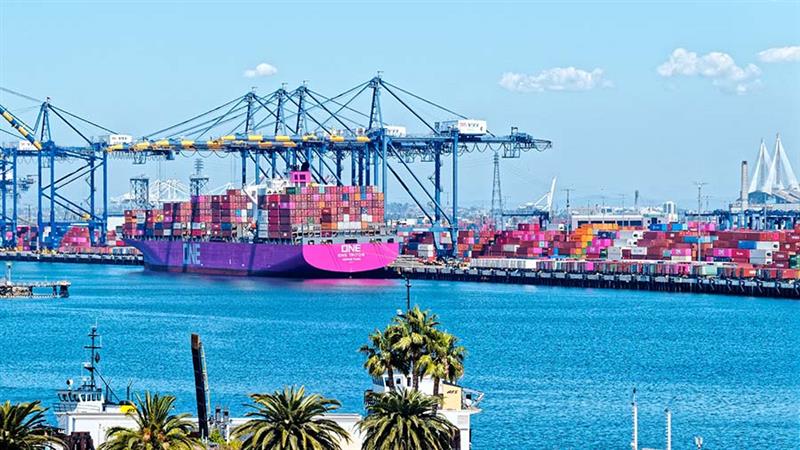China Embraces a Changed Africa
By Andy Scott
Part Three: Requiem for a New Africa
War, poverty, corruption, the drumbeat continues to beat throughout all of Africa. Just a few years ago it all seemed so full of hope, South Africa was emerging from the shadow of apartheid, nations throughout the continent were throwing of the colonial yoke of their former European masters, strong and impassioned leadership was going to recast the great continent. But this is Africa, and things are never that easy.
Following the cold war democracies were flourishing, aid and promises of more was flowing in, Nelson Mandela was the face of new Africa. Nearly twenty years later that picture has faded. The faces that represent Africa these days are Mugabe’s and Bashir’s, and great hope has been replaced by apathy in the West towards what they say is endemic corruption, and resistance on the part of African nations to what they say is patronizing, debt-inducing aid packages that aim to keep them subservient in the global community. The strings – free trade, open markets and privatization – have long been impalpable to many African leader. Now, China’s new found wealth and progressively bold foreign policy has given many in Africa a new place to turn.
This is the final part of a series in which we look at China’s emerging relationship with the Africa. The first part of the series examined China search for oil on the continent, while part two looked at what China was giving back to Africa. Part three examines the Sino-African relationship, its current state, and possible future.
“A long time comin’…a long time gone”
China has been embraced as a new partner, for a newer, different Africa. Nations, fed up with aid packages that come with too many strings and therefore always seem to be blocked, are turning to China with its long-established foreign policy of “non-interference.” It is not only the international pariahs Sudan and Zimbabwe that are turning to China. In 2005 Angola refused to take a US$2 billion loan from the International Monetary Fund for infrastructure development, preferring instead to go to China.
While the large oil-producing nations of Nigeria, Sudan and Angola have been of interest for a long time, smaller nations, often overlooked by the West as too corrupt or unstable for oil exploration, are increasingly seeing Chinese officials in their capitals, negotiating contracts on behalf of their large, state-owned oil and gas corporations.
When Chad switched its diplomatic ties from Taiwan to mainland China in 2006, the money began to pour in. Today, according to The New York Times , China has gone from bit player to center stage in Chad’s affairs after it bought the rights to several oil exploration zones in the country from a Canadian company.
In countries like Chad and Angola, Sudan and Zimbabwe, China is frequently outbidding and out-giving more established western players – Beijing overtook the World Bank in lending to Africa in 2005, committing US$8 billion to Nigeria, Angola and Mozambique alone; the World Bank spent US$2.3 billion in all of Africa.
China is looking to increase not only the wealth of oil and hard minerals coming from Africa but also its position as a world power – an “international stakeholder.” Critics, more often than not western aid donors, worry about the manner in which China unloads its aid. They have been calling on China to abide by global standards when it comes to its policies of aid, development, as well as recognition of human rights and the environment.
“China’s zero-condition policy is appealing to a country which doesn’t have very transparent reporting and budgetary mechanisms,” Katherine Constabile, an Africa analyst with the New York-based Eurasia Group, a global risk consultancy, told the Johannesburg-based Inter Press Service.
Colonialism with Chinese characteristics
Along with the aid come the infrastructure and oil projects. And along with the projects come the Chinese workers who build, maintain, and supervise those projects. It is those workers and jobs that have begun to give Beijing problems, leading many to claim China has become something they have sought very hard to distance themselves from – a colonialist. China’s involvement in Africa creates few jobs, says political scientist Alfredo Tjiurimo Hengari in Der Spiegel. “We solve China’s problems by giving Chinese workers jobs in our backyard.”
The problem has become so large in places like Zambia that when President Hu Jintao visited the Africa for the third time in early 2007, he had to cancel a planned visit to a Zambian copper belt fearing large-scale demonstrations of Zambian workers disgruntled by Chinese mine operation practices.
“At least Western capitalism has a human face,” Michael Chilufya Sata, head of the Patriotic Front and Zambia’s most important opposition leader told Der Speigel. “The Chinese are only out to exploit us.”
Cephus Mukaka, assistant national executive secretary of the Zambia Federation of Free Trade Union says little has been done by China to support the growth of local industries. He told SciDev.net that China should commit to long-term investment and set up a university of science and technology in Zambia to help build local capacity. His views are supported by Lamek Simwanze, a program coordinator for Women for Change, an NGO that lobbies for good educational policies in Zambia. He told the Nairobi Business Daily that even though the investment is purported to be a win-win situation, China appears to be benefiting more.
This is not so much a problem of China’s actions, but the inability to properly express its intentions argues Lu Yiyi in The Straits Times.
A good illustration can be found in Africa. With the rabid expansion of China’s economic activities on the African continent in recent years, accusations of exploitative Chinese behavior have mounted. Cheap Chinese imports are held responsible for the decline of local industries; Chinese companies are said to mistreat African employees; and Chinese immigrants are blamed for taking jobs away from locals.
The answer to these problems, Lu says, is “independent and internationally savvy Chinese NGOs operating abroad to serve as a bridge between the Chinese and other peoples.” An independent and internationally savvy NGO may be hard to create however, in the political reality of a one-party state, desperate to maintain control of an increasingly complex country.
It is the locals, those that would prosper from new jobs and new infrastructure that often worry the most about China’s investment in their communities. One person skeptical is Limassou Saleh, a community organizer in Bongor, Chad – a city at the heart of China’s oil exploration in the country. “Chad is maybe the most corrupt country in the world,” Mr. Saleh told The New York Times. “We have a long history of human rights violations, of lack of transparency, of exploitation. China has a reputation for corruption. They are one of the worst human rights abusers. They have no record of transparency. What would we want with a country like that? Only to make our own problems worse.”
A future uncertain
What the future holds for the chronically poverty-stricken and exploited continent is now in Chinese hands as much as it is in Western and African ones. How the Chinese choose to use their newfound wealth and power will help either to ease or increase world apprehension of the country’s rise.
Will China’s great African odyssey help to finally lift the continent up, or will it become like the TAZARA train in Tanzania, a giant economic aid package of the 1970s that now constantly runs late and rife with robbery gangs.
- Previous Article Hainan Airlines to launch non-stop Beijing-Seattle route
- Next Article Event: Lost in Translation – Why China’s rise is good for the world



























